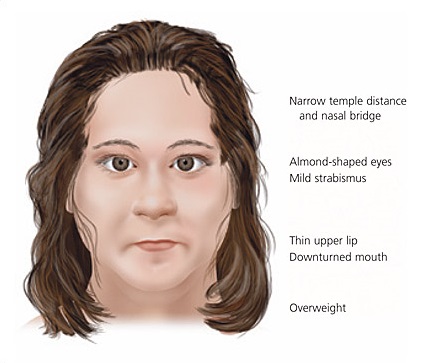Prader-Willi Syndrome (PWS) is a rare and complex genetic condition that impacts metabolism, physical development, and behavior. It begins early in life, often with low muscle tone and feeding challenges in infancy, and progresses to more pronounced symptoms like an insatiable appetite during childhood. This condition demands lifelong management and care, as it poses risks such as severe obesity, respiratory problems, and other life-threatening complications.
At Brimex Medical, Inc., we specialize in providing intellectual and developmental disability support, ensuring individuals with PWS and their families receive comprehensive care tailored to their unique needs. Through our programs, we strive to help patients find their rightful place in the community and lead fulfilling lives.
Who Does Prader-Willi Syndrome Affect?
Prader-Willi Syndrome can affect anyone, as it results from random genetic mutations that occur during the formation of reproductive cells. While rare, the condition can be inherited in some cases if there’s a family history of the genetic abnormality.
This disorder impacts an estimated 1 in 10,000 to 30,000 people globally, making it critical to increase awareness about its symptoms and treatment. Families managing this condition often require tailored support, which is where Brimex Medical, Inc. steps in, offering expert guidance and services to ease the challenges posed by PWS.
Symptoms of Prader-Willi Syndrome
The symptoms of PWS vary widely and depend on the individual’s age. These symptoms can affect physical appearance, development, and behavior.
Symptoms in Infancy:
- Weak Cry: Babies with PWS often have a weak or barely audible cry due to poor muscle tone.
- Lethargy: Infants may appear overly tired and less responsive.
- Feeding Difficulties: Poor sucking reflexes can make feeding challenging, leading to inadequate weight gain.
- Hypotonia: Low muscle tone is a hallmark of the condition, making movement and physical activity difficult.
Symptoms in Childhood and Beyond:
- Physical Characteristics:
- Almond-shaped eyes.
- A long, narrow head.
- A triangular-shaped mouth.
- Short stature and small hands/feet.
- Underdeveloped genitals.
- Behavioral Challenges:
- Emotional outbursts and temper tantrums.
- Intellectual disabilities or delayed cognitive development.
- Obsessive-compulsive tendencies, such as skin picking.
- Sleep disorders, including apnea.
- Hyperphagia: This symptom refers to an insatiable appetite, often leading to overeating and severe obesity if not managed. Individuals with PWS do not feel full after eating, which can result in life-threatening complications such as heart disease and Type 2 diabetes.
At Brimex Medical, Inc., we incorporate behavioral therapy into our support programs to help families address challenges like hyperphagia and emotional regulation, creating a pathway to better health and well-being.
Causes of Prader-Willi Syndrome
Prader-Willi Syndrome arises from abnormalities in chromosome 15. This chromosome is responsible for regulating essential processes in the body, and disruptions in its function lead to the symptoms of PWS.
Common Causes:
- Chromosomal Deletion:
- Approximately 70% of cases occur when a segment of the paternal chromosome 15 is missing.
- Maternal Uniparental Disomy (UPD):
- In about 25% of cases, children inherit two copies of chromosome 15 from the mother, leaving the paternal copy absent.
- Translocation:
- In rare cases, part of chromosome 15 attaches to another chromosome, disrupting its normal function.
These genetic changes impact the production of small nucleolar RNAs (snoRNAs), which regulate critical cellular functions. Without proper snoRNA activity, the body struggles to perform essential tasks, leading to the hallmark symptoms of PWS.
Diagnosis of Prader-Willi Syndrome
Early diagnosis is key to managing PWS effectively. A healthcare provider will evaluate a child’s symptoms and may recommend genetic testing to confirm the diagnosis.
Steps in Diagnosis:
- Physical Examination: Signs such as low muscle tone, distinctive facial features, and poor feeding in infancy prompt further investigation.
- Genetic Testing: A blood test identifies abnormalities in chromosome 15.
At Brimex Medical, Inc., we work closely with families during the diagnostic process, providing resources and emotional support to help them navigate this challenging time.
Treatment and Management of Prader-Willi Syndrome
While there’s no cure for PWS, early and ongoing treatment can significantly improve the quality of life for individuals with the condition.
Treatment Options:
- Nutritional Support:
- Specialized bottle nipples for infants to aid feeding.
- Calorie-controlled diets to manage weight and prevent obesity.
- Hormone Therapies:
- Growth hormone therapy to address short stature.
- Sex hormone replacement therapy to support pubertal development.
- Supportive Therapies:
- Physical therapy to improve muscle tone and mobility.
- Speech and language therapy to address communication challenges.
- Special education programs tailored to cognitive abilities.
- Behavioral Interventions:
- Strategies to manage temper tantrums and compulsive behaviors.
- Techniques to regulate eating habits and control hyperphagia.
Through our personalized care plans, Brimex Medical, Inc. ensures that individuals with PWS receive holistic support, addressing both physical and emotional needs.
Complications of Prader-Willi Syndrome
If left unmanaged, PWS can lead to serious health complications, including:
- Obesity-related heart and respiratory problems.
- Type 2 diabetes and hypertension.
- Sleep apnea.
Our team at Brimex Medical, Inc. focuses on preventive care, helping families create structured routines that minimize these risks and promote overall health.
Supporting Families
Caring for a loved one with PWS can be overwhelming, but you’re not alone. At Brimex Medical, Inc., we offer resources such as support groups, mental health counseling, and educational workshops to empower families and foster a sense of community.
Conclusion
Prader-Willi Syndrome presents unique challenges, but with the right care and support, individuals with the condition can lead fulfilling lives. At Brimex Medical, Inc., our commitment to providing exceptional intellectual and developmental disability services ensures that every patient finds their rightful place in the community.
For more information or to learn how we can support your family, contact us today. Together, we can make a difference.

